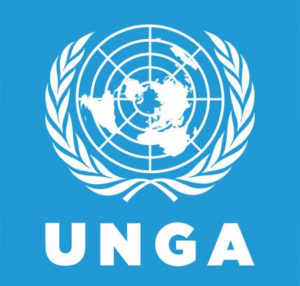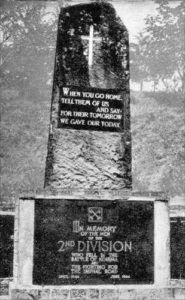Reality check on present condition of deteriorating condition of Spring Revolution and stakeholder countries.
By DARZKKG
We need to plan on after accepting the following reality:
China & the SCO (Tianjin, Aug–Sep 2025): The SCO summit in Tianjin is real, high-profile, and Min Aung Hlaing’s attendance was reported; Beijing is putting visible political weight behind its Myanmar track.
China’s leverage on border actors: Beijing has repeatedly mediated or pressured EROs (KIA, TNLA, MNDAA/“Three Brotherhood Alliance”) for ceasefires and talks in Kunming; this pressure is ongoing in 2024–2025.
AA abuses against Rohingya: Well-documented in 2024–2025 by Human Rights Watch (and others). This is crucial for any protection design.
ASEAN’s limits: The Five-Point Consensus remains largely stalled; “ASEAN centrality” on Myanmar is weakened.
UN legal tracks:
- ICJ (The Gambia v. Myanmar) is live and moving; interventions admitted July 29, 2025; hearings expected late 2025.
- ICC: jurisdiction over cross-border crimes from Bangladesh; the Prosecutor sought an arrest warrant for Min Aung Hlaing in Nov 2024; victims’ participation track is active.
U.S. posture (2025): Major cuts/freezes to foreign aid broadly (impacting border humanitarian ops), partial rollback of some Myanmar-related sanctions, and exploratory conversations about rare earths involving both junta and Kachin channels have been reported. Even if not a wholesale policy shift, the net effect on the ground is reduced leverage for the Spring movement.
Bangladesh focus: Dhaka is pushing for repatriation and relief burden-sharing, and has publicly said resources are exhausted; Yunus has called for justice and security guarantees.
Rare earths as leverage: Fighting and control shifts in Kachin/upper Myanmar have disrupted global heavy rare-earth supply chains; China and the U.S. both have eyes on this.
We need to re-consider these:
- Do we need to “Totally take out USA, India from ASEAN-led peace talk?”
NO! Don’t “eject”; but they should be downgraded to just observers state in a new Contact Group co-led by UN+ASEAN, with China, Thailand, Bangladesh, Japan, EU as core. Need to bring U.S./India in issue-by-issue (sanctions, refugees, demining) when they add value. This avoids paralysis while keeping doors open if policies shift. - Do we need to request “UN’s role more than ASEAN?”
Yes! UN should lead on protection/accountability (UNGA path), while ASEAN co-leads on humanitarian logistics and political convening. - Do we need to “Give China a more prominent role with incentives?”
Yes—but bounded by conditions. Offer post-war investment assurances and a seat in a border working group in exchange for: stopping coercion of EROs, accepting UN monitors, and restraining arms/finance that fuel atrocities. - Do we need to consider the role of “Bangladesh (with support of Türkiye/OIC)?”
Back Dhaka’s push with an OIC-funded window for the corridors and Cox’s Bazar burden-sharing; anchor returns to legal status & UN monitoring, not to timelines. - Do we need to “Rein in AA via incentives/ICC threats?”
Exactly. Pair status/influence in the JOPC and budget access with enforceable red lines: ICC/ICJ referral packets + loss of JOPC voting rights upon verified abuses. - Do we need to“Persuade junta re: 2008 Constitution; soldiers back to barracks?”
Frame a Security Exit Package:
a. Amnesty-with-conditions for rank-and-file and non-atrocity officers; no amnesty for those credibly implicated in core international crimes (tracked via ICC/ICJ).
b. DDR with livelihood guarantees, and political participation as civilians after verifiable demobilization.
c. Constitutional reset conference under UN auspices; 2008 charter replaced via an interim basic law negotiated with EROs/NUG and endorsed through a UN-observed referendum when conditions permit.
90-day priority checklist
For Revolutionaries
- Launch JOPC; publish the three Codes; name a Security Board (Gun Maw as chair + rotating deputies).
- Announce rare-earth moratorium + future conflict-free certification.
- Sign the One Myanmar Social Compact (video, multilingual).
For UN/Partners
- Table UNGA resolution for cross-border corridors + monitors; appoint UN Special Coordinator with ASEAN co-lead.
- Stand up Rohingya protection hubs from Cox’s Bazar into Mayu District (services + monitoring).
- Form Contact Group (UN, ASEAN, China, Thailand, Bangladesh, Japan, EU; U.S./India observers).
For China/ASEAN/Bangladesh
- Start the Border Stability Working Group; designate no-strike zones near key crossings/pipelines with UN verification.
- Thailand formalizes Mae Sot corridor access; Bangladesh green-lights Mayu corridor pilot.
Strategic plan (who should do what)
1) Spring Revolutionaries (NUG + PDFs + key EROs)
a) Create a real joint command & political compact (next 60–90 days).
- Stand up a Joint Operations and Political Council (JOPC) with voting seats for NUG, KIA, TNLA, AA (conditional), major Bamar PDFs (Sagaing/Magway/Mandalay), and Rohingya representatives.
- Security lead: A respected, non-maximalist figure (e.g., Gen. Gun Maw) to chair the JOPC’s military board with rotating deputies from Bamar PDFs and AA/TNLA. This avoids zero-sum “C-in-C” fights while leveraging Gun Maw’s credibility with China and EROs. (Your proposal is directionally sound; make it collegiate, not monarchical.)
- Adopt three binding codes: (1) Civilian Protection & Non-Atrocity Code (explicit prohibitions, independent monitoring, public reporting), (2) Inclusion & Citizenship Code (commit to end the 1982 Citizenship Law framework and guarantee Rohingya citizenship & rights), (3) Resource Governance Code (freeze new concessions; pledge transparent, conflict-free certification post-transition).
b) Manage AA: carrots + hard red lines.
- Offer political stature (JOPC deputy chair; de facto autonomy talks post-transition), budget shares, and border trade revenue arrangements tied to explicit compliance with the Civilian Protection Code.
- Draw red lines: attacks on Rohingya or communal cleansing trigger JOPC suspension of AA voting rights, naming & shaming, and referral dossiers to ICC/UN mechanisms. Back this with third-party incident documentation. Human Rights Watch+1
c) Use rare earths for leverage—not cash.
- Declare a moratorium on new rare-earth deals until a transition framework; offer future offtake certainty to multiple buyers (Japan/EU/India/U.S.) under a conflict-free certification regime administered by an independent trust. This converts battlefield control into long-horizon diplomatic leverage without inviting today’s divide-and-rule. Reuters
d) Messaging reset.
- Launch a “One Myanmar Social Compact”: Burmese, Rakhine, Rohingya, Chin, Kachin, etc., signed by top leaders on video—committing to non-sectarian language, protection of minorities, and equal political status. This directly undercuts Islamophobia narratives that fracture external support. (Back it with the Codes above.)
2) United Nations (UNGA-led, not UNSC-bound first)
a) Shift from UNSC to UNGA (“Uniting for Peace”) track.
- Table a UNGA resolution authorizing:
- Cross-border humanitarian corridors (Thailand & Bangladesh) with UN flagging and escorts,
- A UN Civilian Protection Monitoring Mission (unarmed observers + remote sensing) in Rakhine and northern corridors,
- A Special Coordinator co-appointed with ASEAN to harmonize aid and sanctions guidelines.
This sidesteps likely UNSC vetoes while giving immediate, lawful cover to scale aid. (UNGA authorizations have precedent when UNSC is deadlocked.)
b) Accountability tracks.
- Resource the ICJ/ICC pipelines (evidence preservation; victim participation), and publish quarterly public updates to sustain pressure on all violators (junta and AA if applicable).
c) Rohingya protection now.
- Push a UN-supervised protective presence in the Mayu District via cross-border humanitarian hubs from Cox’s Bazar, with Bangladesh consent and third-country funding; begin with monitoring + services, not blue helmets (which would need UNSC).
3) China
a) Convert influence into guarantees.
- Propose a China-anchored Border Stability Working Group (China, Bangladesh, Thailand, + UN Coordinator) to (i) keep trade nodes open, (ii) prevent refugee spillovers, (iii) formalize no-strike zones near pipelines/crossings, verified by UN monitors. This matches Beijing’s core interests (stability/commerce).
- Offer post-transition investment assurances (existing lawful Chinese projects protected; dispute settlement via neutral arbitration) conditional on: stopping coercion of EROs, accepting UN monitors in Rakhine & border areas, and no arms flows that breach UNGA resolutions.
b) Rare earths compromise.
- Invite China into a multilateral buyer forum that commits to conflict-free sourcing post-transition. That gives Beijing access without owning the table—reduces its incentive to prop up maximalist junta outcomes.
4) ASEAN
a) Co-lead with the UN, but narrow scope.
- Let ASEAN co-chair humanitarian coordination & talks logistics, while UN leads protection & accountability. Keeps “ASEAN centrality” alive without giving it veto over protection moves it can’t deliver.
b) Thailand & Indonesia as anchors.
- Thailand: formalize Mae Sot corridor under UNGA cover; Indonesia: convene Contact Group (ASEAN+UN+China+Bangladesh+Japan+EU; U.S./India as observers if they’re net-unhelpful).
5) Bangladesh (with OIC/Türkiye financing)
- Green-light UNGA-authorized aid corridors into Mayu District; co-host a Rohingya Protection & Returns Compact that ties eventual returns to (i) citizenship guarantees, (ii) UN monitoring, and (iii) no-harm benchmarks certified quarterly.
6) “Interested international forces” (EU, Japan, UK, Gulf/OIC, and yes—U.S. if/when helpful)
- Money & monitoring, not heavy weapons: fund corridors, remote sensing, and survivor services.
- Sanctions coordination 2.0: align on financial chokepoints (state banks, jet fuel, arms brokers) while carving out humanitarian exemptions; condition any rare-earths engagement on conflict-free certification.
- Public diplomacy: unequivocally call out all atrocities (junta and AA). This denies propaganda oxygen to communalists and helps the inclusive compact stick.






